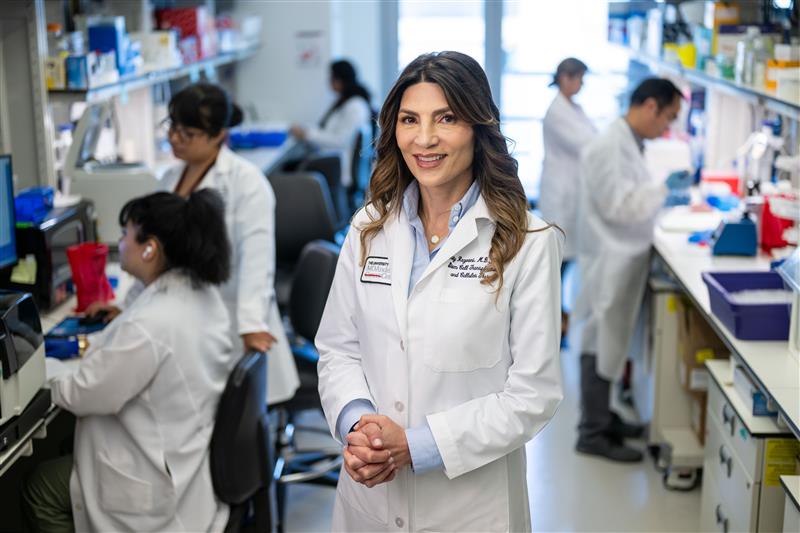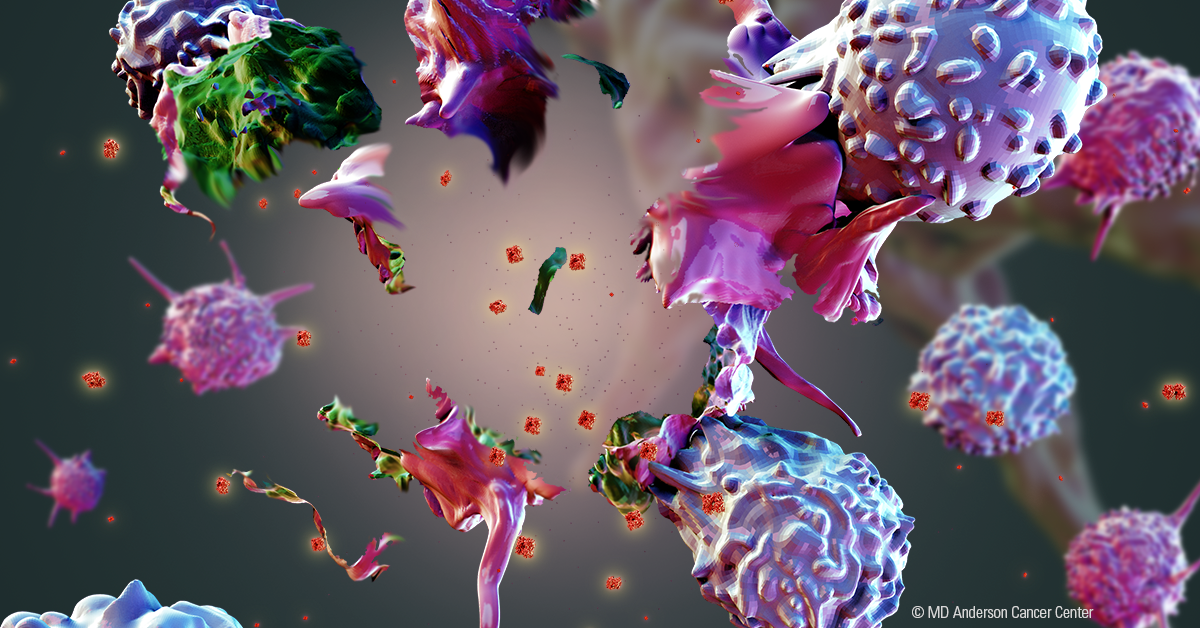- Diseases
- Acoustic Neuroma (16)
- Adrenal Gland Tumor (24)
- Anal Cancer (70)
- Anemia (2)
- Appendix Cancer (18)
- Bile Duct Cancer (26)
- Bladder Cancer (74)
- Brain Metastases (28)
- Brain Tumor (234)
- Breast Cancer (726)
- Breast Implant-Associated Anaplastic Large Cell Lymphoma (2)
- Cancer of Unknown Primary (4)
- Carcinoid Tumor (8)
- Cervical Cancer (164)
- Colon Cancer (168)
- Colorectal Cancer (118)
- Endocrine Tumor (4)
- Esophageal Cancer (44)
- Eye Cancer (36)
- Fallopian Tube Cancer (8)
- Germ Cell Tumor (4)
- Gestational Trophoblastic Disease (2)
- Head and Neck Cancer (14)
- Kidney Cancer (130)
- Leukemia (342)
- Liver Cancer (50)
- Lung Cancer (286)
- Lymphoma (278)
- Mesothelioma (14)
- Metastasis (30)
- Multiple Myeloma (100)
- Myelodysplastic Syndrome (60)
- Myeloproliferative Neoplasm (6)
- Neuroendocrine Tumors (16)
- Oral Cancer (102)
- Ovarian Cancer (178)
- Pancreatic Cancer (160)
- Parathyroid Disease (2)
- Penile Cancer (14)
- Pituitary Tumor (6)
- Prostate Cancer (150)
- Rectal Cancer (58)
- Renal Medullary Carcinoma (6)
- Salivary Gland Cancer (14)
- Sarcoma (238)
- Skin Cancer (300)
- Skull Base Tumors (56)
- Spinal Tumor (12)
- Stomach Cancer (66)
- Testicular Cancer (28)
- Throat Cancer (92)
- Thymoma (6)
- Thyroid Cancer (100)
- Tonsil Cancer (30)
- Uterine Cancer (86)
- Vaginal Cancer (18)
- Vulvar Cancer (22)
- Cancer Topic
- Adolescent and Young Adult Cancer Issues (22)
- Advance Care Planning (12)
- Biostatistics (2)
- Blood Donation (18)
- Bone Health (8)
- COVID-19 (360)
- Cancer Recurrence (120)
- Childhood Cancer Issues (120)
- Clinical Trials (628)
- Complementary Integrative Medicine (22)
- Cytogenetics (2)
- DNA Methylation (4)
- Diagnosis (238)
- Epigenetics (6)
- Fertility (62)
- Follow-up Guidelines (2)
- Health Disparities (14)
- Hereditary Cancer Syndromes (128)
- Immunology (18)
- Li-Fraumeni Syndrome (8)
- Mental Health (122)
- Molecular Diagnostics (8)
- Pain Management (62)
- Palliative Care (8)
- Pathology (10)
- Physical Therapy (18)
- Pregnancy (18)
- Prevention (936)
- Research (390)
- Second Opinion (78)
- Sexuality (16)
- Side Effects (616)
- Sleep Disorders (10)
- Stem Cell Transplantation Cellular Therapy (216)
- Support (408)
- Survivorship (328)
- Symptoms (182)
- Treatment (1788)
Q&A: New research on early detection of pancreatic cancer
BY Meagan Raeke
4 minute read | Published December 16, 2020
Medically Reviewed | Last reviewed by an MD Anderson Cancer Center medical professional on December 16, 2020
Pancreatic cancer only accounts for about 3% of cancers diagnosed in the U.S. each year, but it is the third most common cause of cancer-related death. Because the disease is often caught when it’s already at an advanced stage, MD Anderson researchers are exploring new ways to detect pancreatic cancer earlier, when patients are more likely to benefit from treatment.
We discussed new research on screening for pancreatic adenocarcinoma, the most common type of pancreatic cancer, with cancer prevention researcher Johannes Fahrmann, Ph.D., who led a new study that recently published in the journal Gastroenterology.
How is pancreatic cancer diagnosed?
Pancreatic cancer can be difficult to diagnose because it often doesn’t cause symptoms at its early stages, and because the pancreas is located deep inside the body, where it’s hard to see or feel a tumor during a routine exam.
A combination of imaging tests, blood tests and/or a biopsy may be used to diagnose pancreatic cancer. A blood test, or liquid biopsy, that shows high levels of a tumor marker called CA19-9 may help confirm a pancreatic cancer diagnosis.
Why is it important to catch pancreatic cancer early?
Currently, there isn’t a good way to screen for pancreatic cancer. About 80% of patients are diagnosed with unresectable pancreatic cancer. That means the cancer has advanced to the point where surgery isn’t an option. But right now, completely removing the tumor with surgery is the only potential cure for pancreatic cancer.
We want to find a way to catch more pancreatic cancer at early stages, when it has a better chance of successful treatment.
What did your study on CA19-9 find?
The goal of our study was to see if CA19-9 could also be used as a biomarker for pancreatic cancer screening in people without symptoms. We compared CA19-9 levels in blood samples from people who did not have symptoms at the time the blood was taken, but who later went on to develop pancreatic cancer. We found that CA19-9 levels begin to rise about two years before clinical diagnosis. Our data further shows that CA19-9 levels rise exponentially about a year before diagnosis. This suggests that pancreatic cancer progresses rapidly; there appears to be a small window – about six months – before localized, treatable disease becomes more advanced.
There are other non-cancerous conditions that can cause CA19-9 to rise, and about 10% of people don’t produce the CA19-9 protein at all. We accounted for this in our study by evaluating the contributions of two other biomarkers that we have previously validated for detecting early-stage pancreatic cancer and found that including these two markers helps identify pancreatic cancer cases that would have been missed by CA19-9 alone.
What’s next for your research on pancreatic cancer screening?
Because pancreatic cancer is so rare, even a screening biomarker that’s 99% specific would produce too many false positives when screening the general population. For that reason, we think it’s ideal to test this screening strategy in an inherently high-risk population. We know that certain groups of people, including those with a family history of pancreatic cancer, with a new-onset diabetes diagnosis at age 50 or older, or with pancreatic cysts, are at higher risk for developing pancreatic cancer than the general population.
Our next step is to test our screening biomarker panel, anchored by CA19-9, in prospective cohorts of people who are at high-risk of pancreatic cancer and to evaluate the panel’s ability to identify people who are at high risk of developing or actively harboring pancreatic cancer. This will allow us to see if the blood test is clinically beneficial. It’s important to note that we’re not trying to make a diagnostic test. Instead, we’re trying to identify individuals who would benefit from closer follow-up.
Is there anything else pancreatic patients and their loved ones should know?
There’s hope for the future of pancreatic cancer diagnosis and treatment. Every day we get closer to capturing the disease as early as possible and increasing the chance of a curable response.
It’s also important to understand the risk factors for pancreatic cancer and to talk to your doctor if you have a family history of the disease, develop diabetes over the age of 50 or have a pancreatic cyst.
Request an appointment at MD Anderson online or by calling 1-855-451-1474.
Related Cancerwise Stories

We want to find a way to catch more pancreatic cancer at early stages, when it has a better chance of successful treatment.
Johannes Fahrmann, Ph.D.
Researcher





